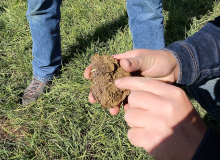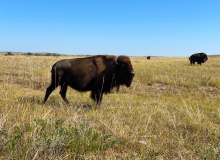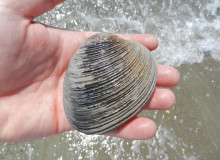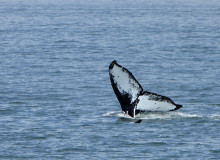Featured Stories
Planet Forward Correspondent | SUNY Environmental Science and Forestry
Can eating meat save the planet? In this short documentary, ranchers and scientists at McGinley Ranch discuss regenerative ranching practices and ecological economics.
Planet Forward Correspondent | Arizona State University
From a classic Jewish deli, to a charming date-night spot, to a punk rock food truck, join me on a tour of some of San Diego's best and most sustainable vegan food restaurants.
Mandela Washington Fellow
The cost of staying fashionable goes beyond the price tag to the environment. Sustainable Fashion designer Ngwane Liz is reversing the fast fashion trend by patching pieces of tossed clothes into new garments.
Planet Forward Correspondent | Middlebury College
Royal National Park provides a compelling example of how national parks around the world can better preserve Indigenous cultures.
George Washington University
We are in a time of Indigenous resurgence and now is the time to reclaim our narrative and tell our own stories. Meet our inaugural Indigenous Correspondent team.
Planet Forward Correspondent | George Washington University
An interview with Vice President of Ranch Operations at Turner Enterprises, Mark Kossler, about the benefits, challenges, and future of sustainable agriculture.
University of Missouri
Declining rangeland and rising temperatures have livestock ranchers searching for solutions. To South Dakota State University research assistant Anlly Fresno Rueda, a bison’s gut is as good of a place to start looking as any.
Planet Forward
Planet Forward’s Senior Editor and Education Lead Lisa Palmer talks to Alexander Cotnoir and JoRee LaFrance about the Indigenous Correspondents Program and the future they envision for the program.
University of Florida
Meet clammers, scientists and volunteers, like TV star Blair Wiggins and three generations of women, who are returning clams to Florida's Indian River Lagoon and other ailing waters to reduce pollution.
Planet Forward Correspondent | Ithaca College
HappyWhale, a website created in 2015, uses a unique algorithm to identify and track humpback whales. It relies on photographs from ordinary people to further scientific research.

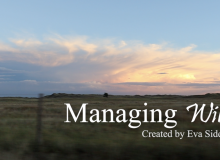

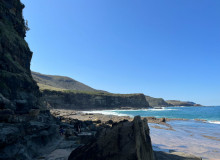
.png%3Fitok=hQVcGD83)
